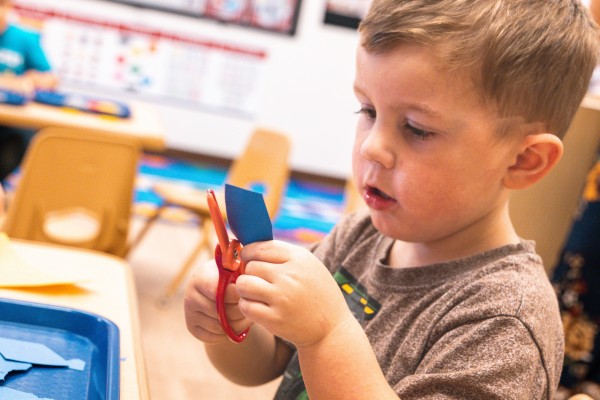
Healthy Back-to-School Habits for Preschool and School-Age Children
As the school year begins, establishing healthy habits can set the stage for a successful and joyful school year for you and your child. At Children’s Lighthouse, we understand that developing routines early fosters confidence, resilience, and overall well-being. By focusing on physical, emotional, and mental health, parents can help children transition smoothly into the school environment or a new classroom. Here are some essential back-to-school habits for preschoolers and school-aged children that promote growth, learning, and happiness.

Establish Consistent Sleep Routines Adequate rest is vital for a child’s development. The American Academy of Sleep Medicine recommends that preschoolers (ages 3-5) receive 10-13 hours of sleep per night, while school-aged children (ages 6-12) need 9-12 hours (Paruthi et al., 2016). Consistent bedtimes and wake-up routines help regulate their internal clocks, ensuring they are well-rested and ready to learn. Creating a calming bedtime routine, such as taking a bath then reading a bedtime story, can make transitions to sleep smoother and more predictable.
Foster Emotional Well-being Returning to school or promoting to a new classroom can bring a mix of excitement and anxiety. Acknowledging your child’s feelings and discussing the upcoming school year can help ease worries. According to the National Association for the Education of Young Children (NAEYC), creating an open dialogue and validating emotions fosters emotional security (NAEYC, 2020). Encourage your child to express their feelings through art or storytelling and reassure them that it is normal to feel nervous.
Establish a Morning Routine A structured morning routine sets a positive tone for the day. Encourage preschoolers and school-aged children to participate in morning tasks, such as getting dressed, brushing their teeth, and packing their bags. Visual schedules or checklists can help younger children stay on track. The American Academy of Pediatrics (AAP) highlights the importance of predictability in reducing stress and promoting independence (AAP, 2021).

Develop Social Skills and Friendships Social development is integral to a child’s experience at school. Arrange playdates or encourage group activities that build teamwork and communication skills. Practicing basic social skills, like sharing and listening, can enhance peer relationships. Role-playing social scenarios can help prepare school-aged children for interactions with classmates.
Prioritize Good Hygiene Habits Teaching children proper hygiene practices, such as regular handwashing and covering their mouths when coughing, helps prevent illness. The CDC recommends reinforcing these habits through songs or games to make learning fun (CDC, 2021). Teaching your child how to use personal hygiene items, like tissues and hand soap, encourages independence in the classroom environment and makes them feel more comfortable in using these items independently.
Celebrate Achievements and Progress Recognizing and celebrating small achievements boosts self-esteem and motivation. Praise efforts rather than just outcomes, reinforcing the value of perseverance and hard work. Celebrate milestones with simple rewards, like a family outing or extra playtime, to make learning a positive experience. This could be as simple as praising them for picking out their clothes for the next day or putting up their shoes or backpacks in the right place when they arrive home after school.
By incorporating these healthy habits, parents can support their children in developing the skills and confidence needed for a successful school year. At Children’s Lighthouse, we believe that nurturing the whole child—mind, body, and heart—lays the foundation for lifelong success and happiness.
References
- Centers for Disease Control and Prevention. (2021). Healthy schools. https://www.cdc.gov/healthyschools/index.htm
- Paruthi, S., et al. (2016). Consensus statement of the American Academy of Sleep Medicine on the recommended amount of sleep for healthy children. Journal of Clinical Sleep Medicine, 12(6), 785-786.
- National Association for the Education of Young Children. (2020). Understanding and supporting children’s emotional development. https://www.naeyc.org
- American Academy of Pediatrics. (2021). Healthy children: Back to school tips. https://www.healthychildren.org



